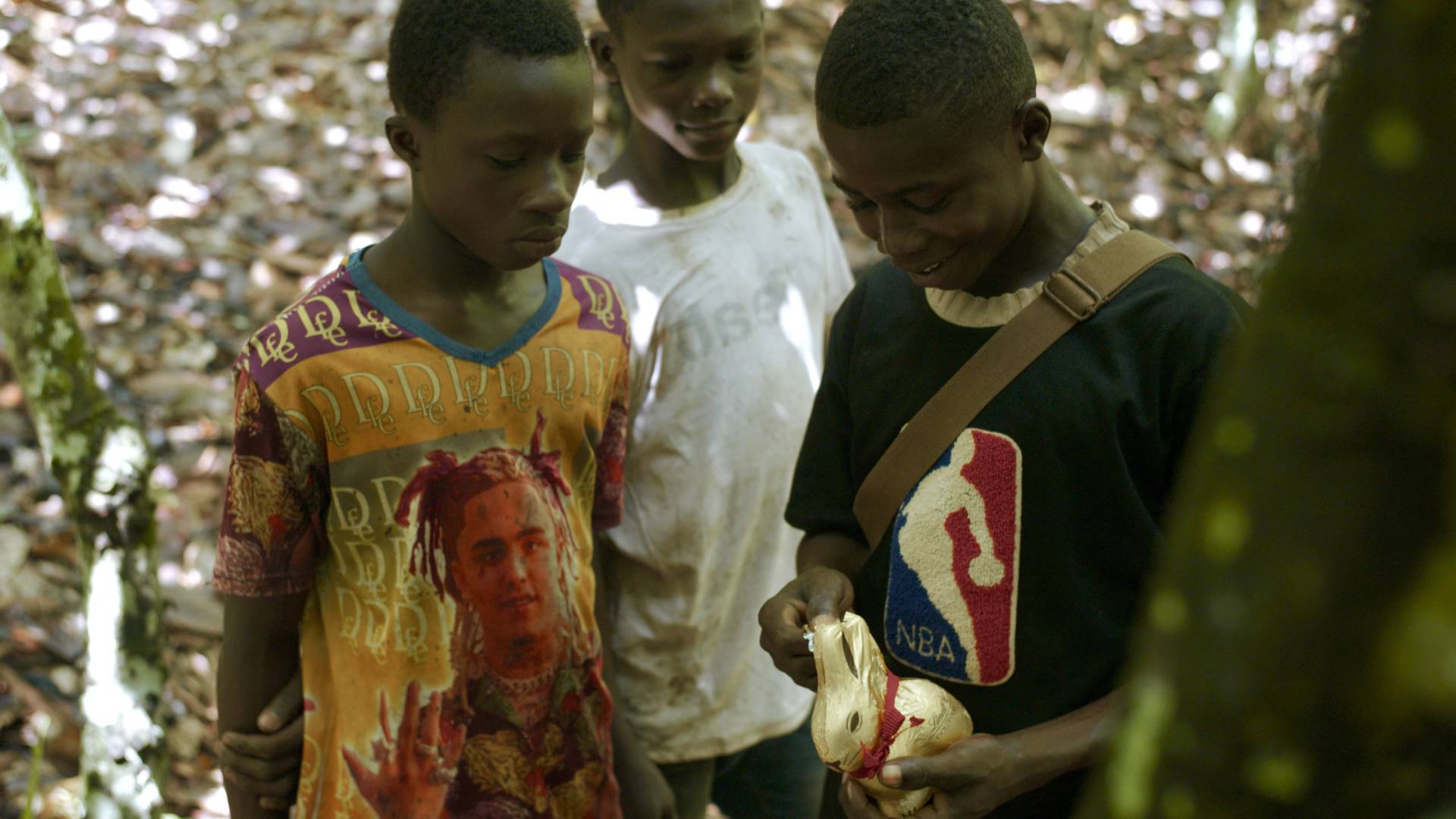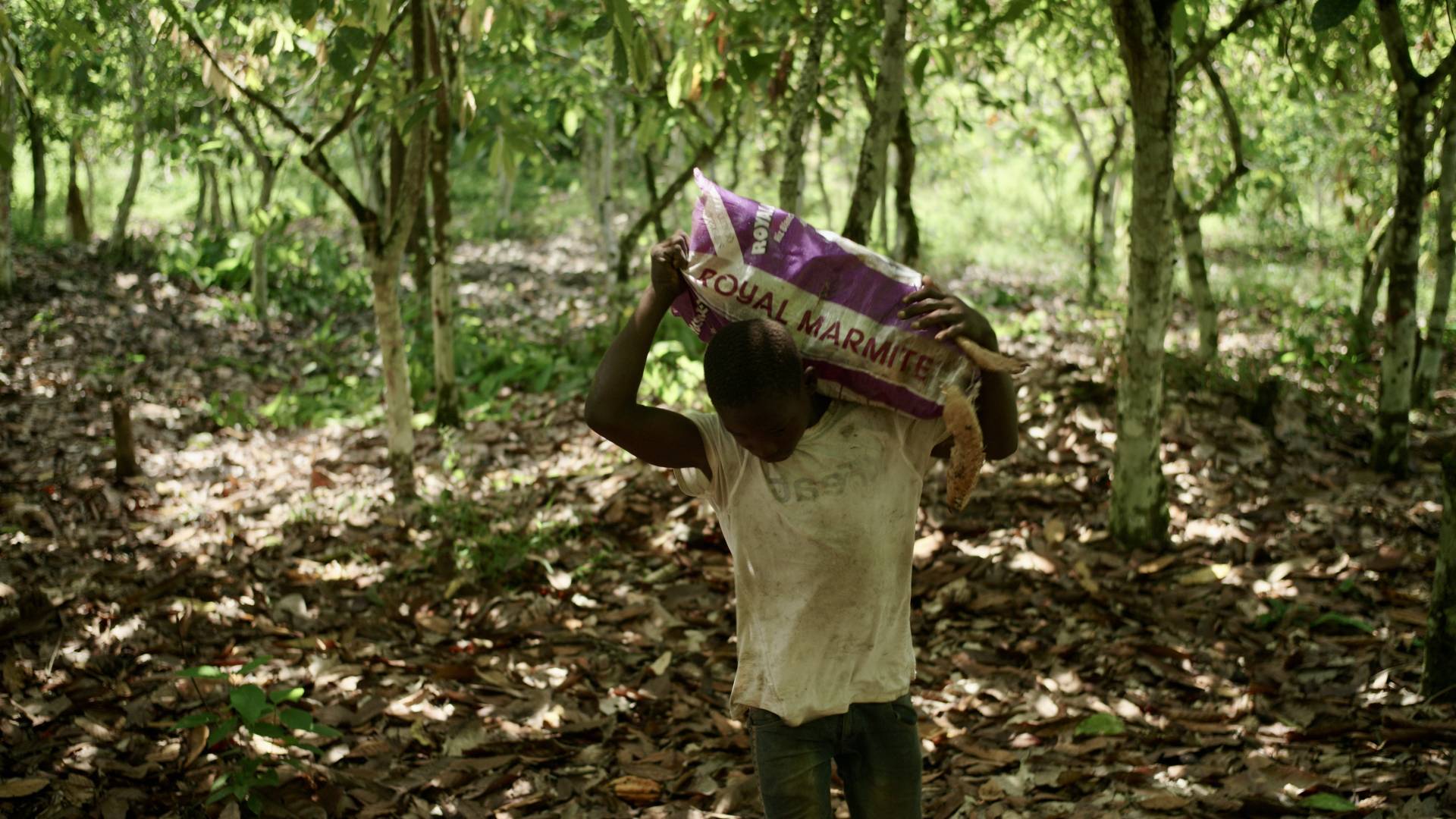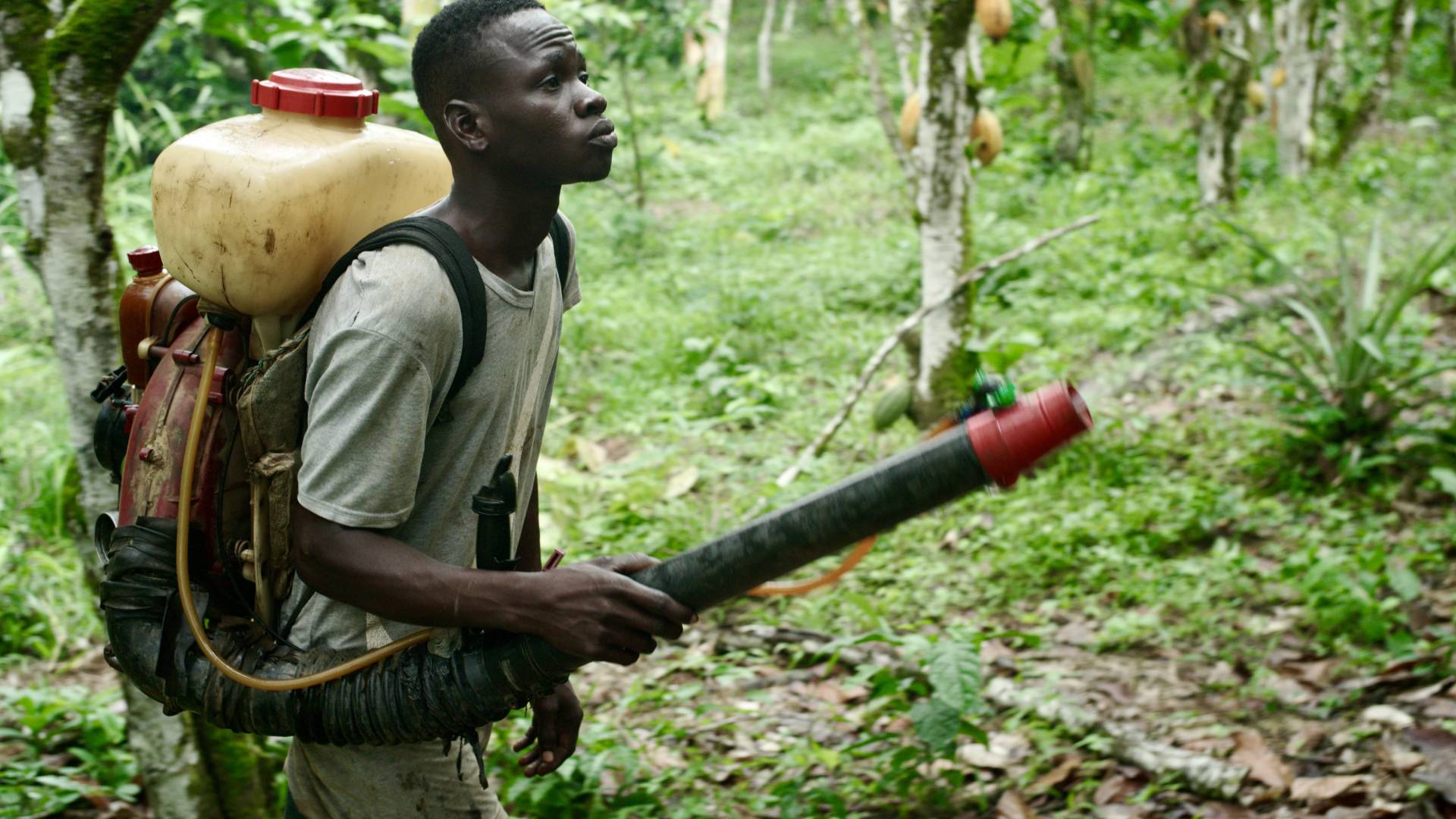Dirty Chocolate
Mission Earth 52' 2025 HD
A gripping film about the bitter side of chocolate – most people's favourite sweet treat.
They are in favour of fair trade, sustainability and against child labour. Critical consumers who browse the websites of chocolate manufacturers quickly feel good about their purchases. Chocolate, it seems, can be bought without a guilty conscience. But is that really true? A television crew travels to the Ivory Coast and uncovers appalling conditions: numerous children are toiling there under miserable conditions. The cocoa beans they harvest are also found in chocolate bars that bear a seal of sustainability and fair trade.
‘When we eat meat, it's rats,’ says 13-year-old Marcellin. Like many other children, he works on the cocoa plantations in Côte d'Ivoire, the world's largest cocoa producer. The young workers are often only 12 years old, handle dangerous tools and have no chance of an education, a decent wage or adequate nutrition. According to estimates, around 1.5 million children work in such precarious conditions in Ivory Coast alone. Many of them come from even poorer countries such as Mali or Burkina Faso. They have been sold by their parents to plantation owners because they cannot feed their families.
How can this be? After all, many chocolate packages bear the Rainforest Alliance certification seal, which is supposed to stand for environmental and social sustainability. Swiss chocolate manufacturer Lindt & Sprüngli does not use this seal, but instead explicitly advertises its own sustainability programme.
The hunger for chocolate is a disaster not only for children, but also for nature. In order to plant more and more cocoa, the rainforest has to make way. Every year, enormous areas of forest are cleared to make room for the sweet, brown gold.
Everyone involved in cocoa production in Côte d'Ivoire is exploited: from children to the forest. Even the dock workers who ship the cocoa to Europe earn almost nothing. For this reason, there is only one thing on their minds: fleeing to Europe! Only large corporations such as Nestlé, Cargill and Barry-Callebaut profit from cocoa.
However, there is hope for chocolate! In the Caribbean, the Dominican Republic is focusing on fair organic farming. In this island nation, there is hardly any child labour and cocoa farmers receive reasonably fair pay. Cocoa from the Caribbean accounts for less than 2% of the global cocoa volume, but it shows how it can be done.
‘Dirty Chocolate’ reveals the bitter truth behind the sweet temptation and confronts viewers with the question of how much the enjoyment of chocolate is worth to us.
Produced by
HTTV Produktion
Languages
English
Broadcasters
NDR, WDR
Gallery



